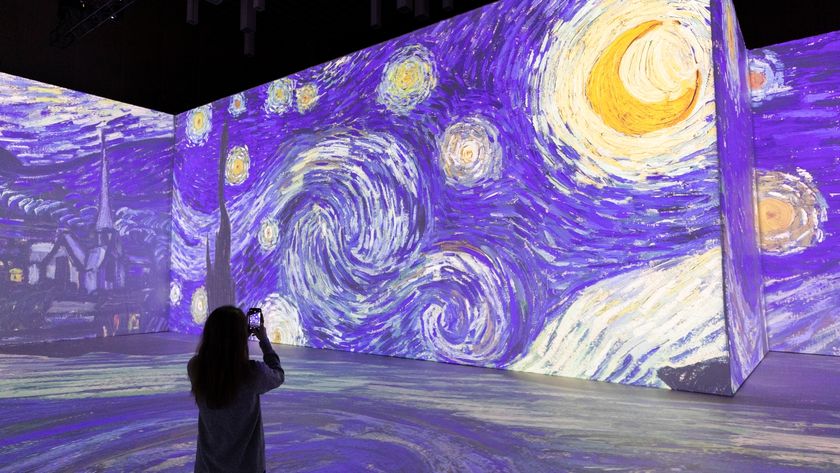Al Gore Takes 'Inconvenient Truth' to Cannes

CANNES, France (AP)—Michael Moore has been the American on a mission at the Cannes Film Festival for the past few years. This time it's Al Gore's turn, with the studious but engrossing documentary "An Inconvenient Truth.''
The former U.S. vice president climbed Cannes' famous red carpet in black tie this weekend for a screening of the film about his efforts to educate people about global warming. Gore usually takes his message to more modest locales, such as school auditoriums and hotel conference rooms.
"As for my personal reactions to all the cameras, the red carpet and all that, I'm old enough now to put this in a different perspective,'' Gore told The Associated Press on Monday. "I am able to enjoy it without allowing it to get out of proportion.''
Directed by Davis Guggenheim, "An Inconvenient Truth'' chronicles Gore's main preoccupation since losing the 2000 presidential election: touring the world to give factual, funny, and very disturbing slide show lectures about climate change.
"It's something that feels like a mission,'' Gore said in an interview on a hotel rooftop overlooking the Mediterranean.
Gore says he enjoyed Moore's films, including "Fahrenheit 9/11,'' the documentary critical of U.S. President George W. Bush that won Cannes' top prize two years ago—although he can "fully understand why they drive others to distraction if they have different political views.''
But unlike "Fahrenheit,'' "An Inconvenient Truth'' has no political agenda, says Gore, who confirmed he has no plans to run for president in 2008. He believes global warming is a moral, nonpartisan issue, and he says many Republicans have embraced the film, which debuts in U.S. theaters on Wednesday.
Sign up for the Live Science daily newsletter now
Get the world’s most fascinating discoveries delivered straight to your inbox.
"Underlying it all is a mission to move the United States and the world past a tipping point, and to change the minds of enough people so that they demand that politicians in all political parties take action to stop this crisis,'' said Gore, who has studied the problem since he was a college student in the 1960s.
The Bush administration, which has rejected the Kyoto Protocol on control of greenhouse gas emissions, prefers letting industry take voluntary steps. The United States accounts for a quarter of the world's greenhouse gases.
The movie seems a tough sell, with its stream of facts, photos of melting glaciers and graphs linking the rise and fall of atmospheric carbon-dioxide to temperatures.
Though there are a few amusing animated segments—Gore rescues a cartoon frog from a pot of boiling water at one point—most of it takes place in conference rooms. And yet the movie somehow manages to be educational, entertaining and frightening.
Guggenheim says he was skeptical when the project was presented to him.
"I was like, you can't make a movie about a slideshow, and I'm not so sure having a politician telling us is the best way to hear about it,'' Guggenheim said. "Then they brought me to the slideshow and it just blew my mind. ... I just wanted to give people that experience, give them a front row seat.''
The movie's most troubling segments are those about the future. If the pace of pollution continues, Gore says, carbon-dioxide levels will be off the charts within decades.
The possible consequences: melting glaciers could reroute ocean currents to bring a new ice age in Europe and cause floods that would submerge present-day coastlines and turn tens of millions of people into refugees.
Gore says oil and coal companies have led a "disinformation campaign'' that has caused many Americans to doubt whether global warming is real. He believes more people are waking up to the issue today.
"The debate's over in the scientific community, and we have what we need to get started,'' Gore said. "What's missing is the shared sense of urgency that the scientists say is appropriate for this crisis. That's what the movie is all about.''
Hot Topic
The Controversy
- Conflicting Claims on Global Warming and Why It's All Moot
- Baffled Scientists Say Less Sunlight Reaching Earth
- Scientists Clueless over Sun's Effect on Earth
- Greenhouse Gas Hits Record High
- Key Argument for Global Warming Critics Evaporates
The Effects
- Seas to Rise
- Greenland Melts
- Ground Collapses
- Glaciers Disappear
- Allergies Get Worse
- Rivers Melt Sooner in Spring
- Increased Plant Production
- Animals Change Behavior
- Hurricanes Get Stronger
- Lakes Disappear
The Possibilities
- More Rain but Less Water
- Ice-Free Arctic Summers
- Overwhelmed Storm Drains
- Worst Mass Extinction Ever
- A Chilled Planet
Strange Solutions












